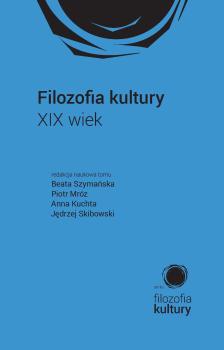Guyau – witalizm u źródeł etyki .......... 535
Synopsis
GUYAU – VITALITY AS THE SOURCE OF ETHICS
Engaging in a polemic against traditional morality, based on duty and sanctions, originating in transcendence or reason, Guyau presents an idea of ethics that is spontaneously produced by life. Vitality drawn from nature is seen as the source of an individual’s well-being and happiness, which ultimately generates one’s homoeostasis in relation to society and the cosmos. Guyau’s naturalistic programme is by no means a simple embrace of Epicureanism, the ideas of the Enlightenment, or utilitarianism. It deals with problems suited to his position as a subtle nineteenth century philosopher, well versed in various doctrines and positions, an erudite and delicate poet, whose very existence was physically undermined and threatened by an incurable illness. Guyau’s concept of nisus tries to recover the sensual and impulsive constitution of man, alienated in culture, by exposing, long before Nietzsche and Freud, the role of the unconscious. By postulating anomic religion he wants to detach man from a fictitious orthodox creed which distorts life. He recommends irréligion, which liberates an individual from theological oppression, makes faith totally pluralistic and autonomous, but saves the sacred character of man manifested in the refusal to accept his temporal reduction and in the rapture of aiming at global harmony. Guyau gives a positive answer to the question of whether the altruistic ingredient of vitalism is sufficient for founding a conciliatory society. A life, which strives not only to survive but also to grow and is diffusive of itself, encounters another life. The bond between them is ultimately defined by solidarity, fraternity, mercy and love, which – according to Guyau, not content with naturalism alone but also taking history into account – are intensified in the course of cultural progress. If there is any distortion or harm in human relations, it is not due to nature but to the alienating processes in society itself, made dysfunctional because of the lack of sufficient education and reliance on anachronistic stereotypes. There is no doubt that a discussion about Guyau’s supoposedly naïve views is worthwhile, regardless of their refutation by the twentieth century traumatic catastrophes of mankind, which dispose us to greater caution and a smaller dose of historiosophical or axiological optimism than he himself would admit.





